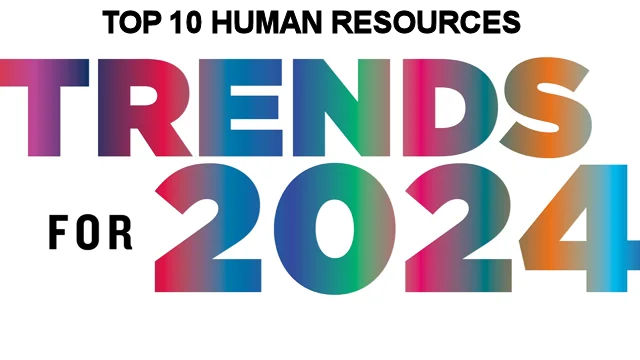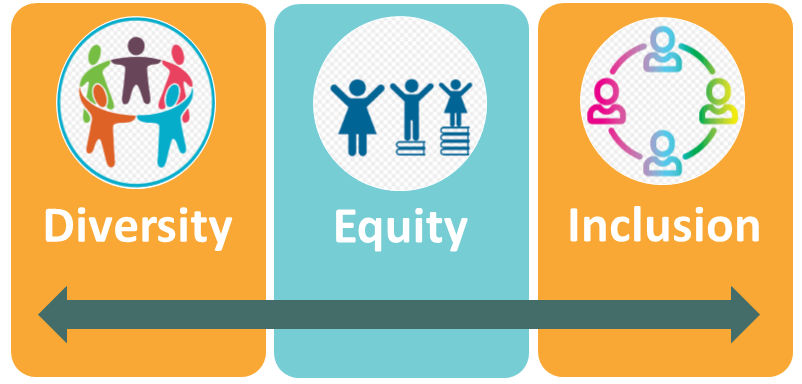Human resources (HR) plays a role in every organization overseeing its valuable asset. Its workforce. With the advancements, in technology shifts in the demographics of the workforce and alterations in structures it’s crucial for businesses to keep up with HR trends to succeed.
As we move forward into 2024 and beyond here are the top 10 HR trends to keep an eye on:
-
Remote Work and Flexibility
The rise of work due to the impact of the COVID 19 pandemic is here to stay. Companies are increasingly embracing work arrangements to attract talent enhance work life balance and cut down on costs.
HR professionals need to create policies that support work while ensuring productivity and employee engagement.
-
Employee Well-being
The wellbeing of employees has become a focus, for HR departments. Organizations are realizing the significance of supporting their employees physical, mental and emotional health by offering wellness programs, mental health resources and promoting a culture that values work life balance.
HR leaders must prioritize employee wellbeing to cultivate a committed workforce.

-
Diversity, Equity and Inclusion (DEI)
Initiatives focused on diversity, equity and inclusion are gaining momentum as companies aim to build environments at work.
Human resources (HR) plays a role, in promoting diversity and nurturing a work environment. This includes providing diversity training implementing hiring practices and creating opportunities for marginalized groups.
Companies that prioritize diversity, equity and inclusion (DEI) tend to attract and retain talent effectively.
-
Data focused HR
With the increasing use of data and analytics HR professionals are utilizing data to make informed decisions. Whether its predicting employee turnover or identifying areas for skills development data analytics is transforming HR operations.
HR teams must invest in data analysis tools. Enhance their ability to interpret and apply data insights.

-
Remote Onboarding and Training
As remote work continues to grow in popularity organizations are rethinking their onboarding and training procedures. HR departments are leveraging technology to deliver onboarding experiences and offer remote training opportunities.
Effective onboarding and training initiatives are crucial, for integrating employees into the company culture and supporting their success in a setting.
-
Adaptable Benefits Packages
In today’s competitive employment landscape providing a benefits package may no longer meet employees’ expectations. Workers appreciate benefits tailored to their needs.
HR professionals are exploring benefits packages that empower employees to tailor their benefits according to their preferences and life stage. This encompasses choices like work schedules, wellness benefits and extra time, off.
-
Skills oriented Recruitment
The traditional methods of hiring are changing to prioritize skills over degrees or certifications. Employers are giving weight to candidates’ practical skills, competencies and experiences.
HR professionals are using skills-based recruitment strategies, including skills evaluations and competency focused interviews to pinpoint the candidates for the position.

-
Remote Performance Evaluation
Evaluating performance in a work setup poses challenges for HR professionals. Conventional performance evaluation methods may not be as effective in a context.
Companies are exploring ways of managing performance, such as establishing objectives and expectations offering regular feedback and utilizing technology for monitoring and assessment.
-
Flexible HR Approaches
In todays paced business environment adaptability is crucial for HR teams to promptly address evolving needs and priorities. Agile HR practices involve embracing processes, cross functional teamwork and continuous enhancement.
HR leaders are adopting methodologies to boost efficiency, flexibility and innovation within their companies.
-
Integration of HR Technology
The significance of technology in HR is expanding rapidly with advancements, in AI technology automation tools and Human Resources Information Systems (HRIS).
Incorporating HR technology solutions can streamline operations enhance data precision and elevate the employee experience. It’s crucial for HR professionals to keep abreast of the HR technologies and utilize them to propel achievements.

Conclusion
The HR landscape is evolving rapidly, driven by technological advancements, shifting workforce dynamics, and changing employee expectations. By staying informed about HR trends and executing measures HR experts can steer their organizations towards success in the future workplace.
Embracing work emphasizing employee well-being promoting diversity and inclusion and harnessing data driven insights are among the tactics to effectively navigate the changing HR landscape.
As we continue to adapt to the changing times, one thing remains certain: the role of HR will continue to be indispensable in shaping the future of work.






